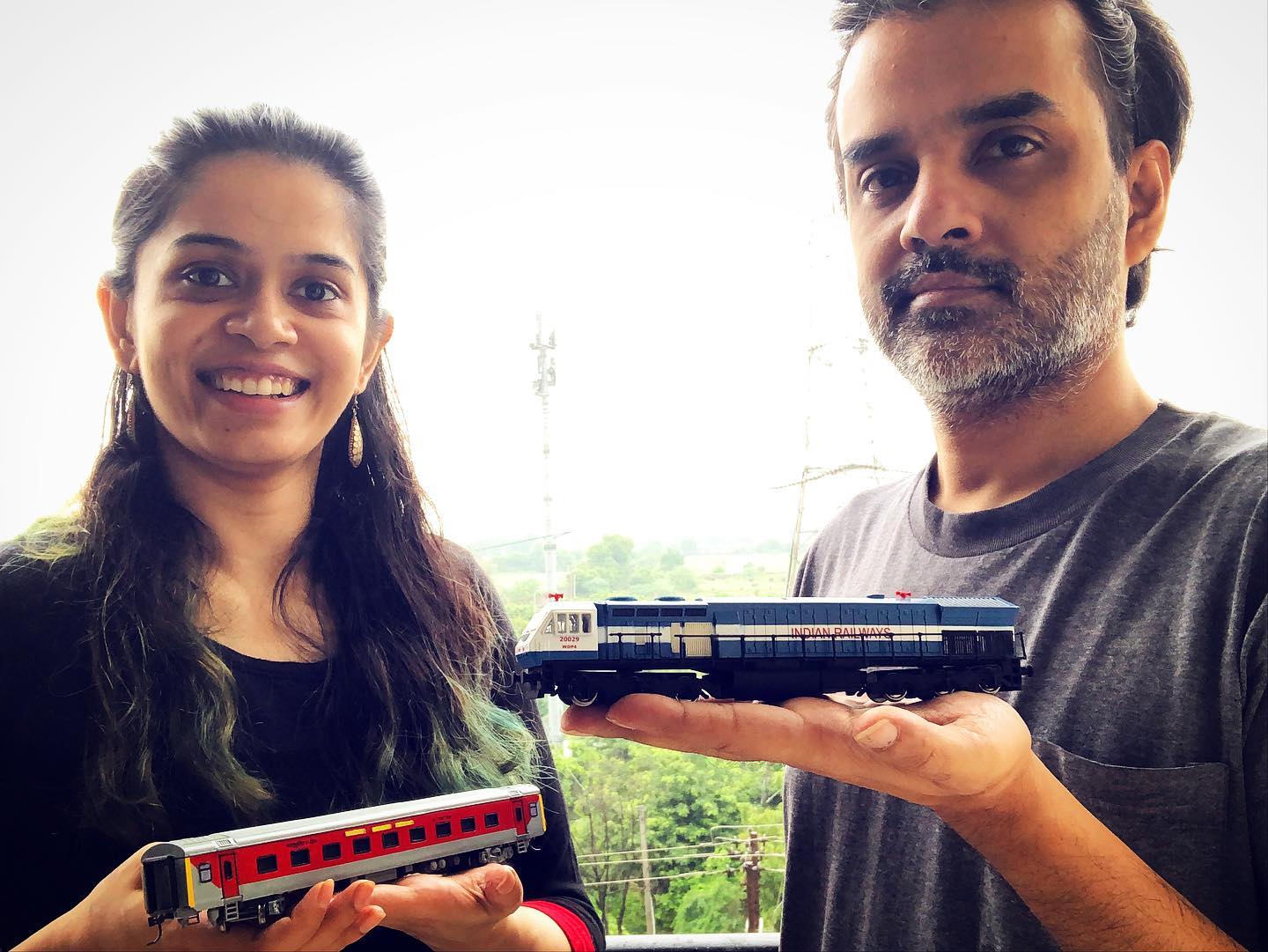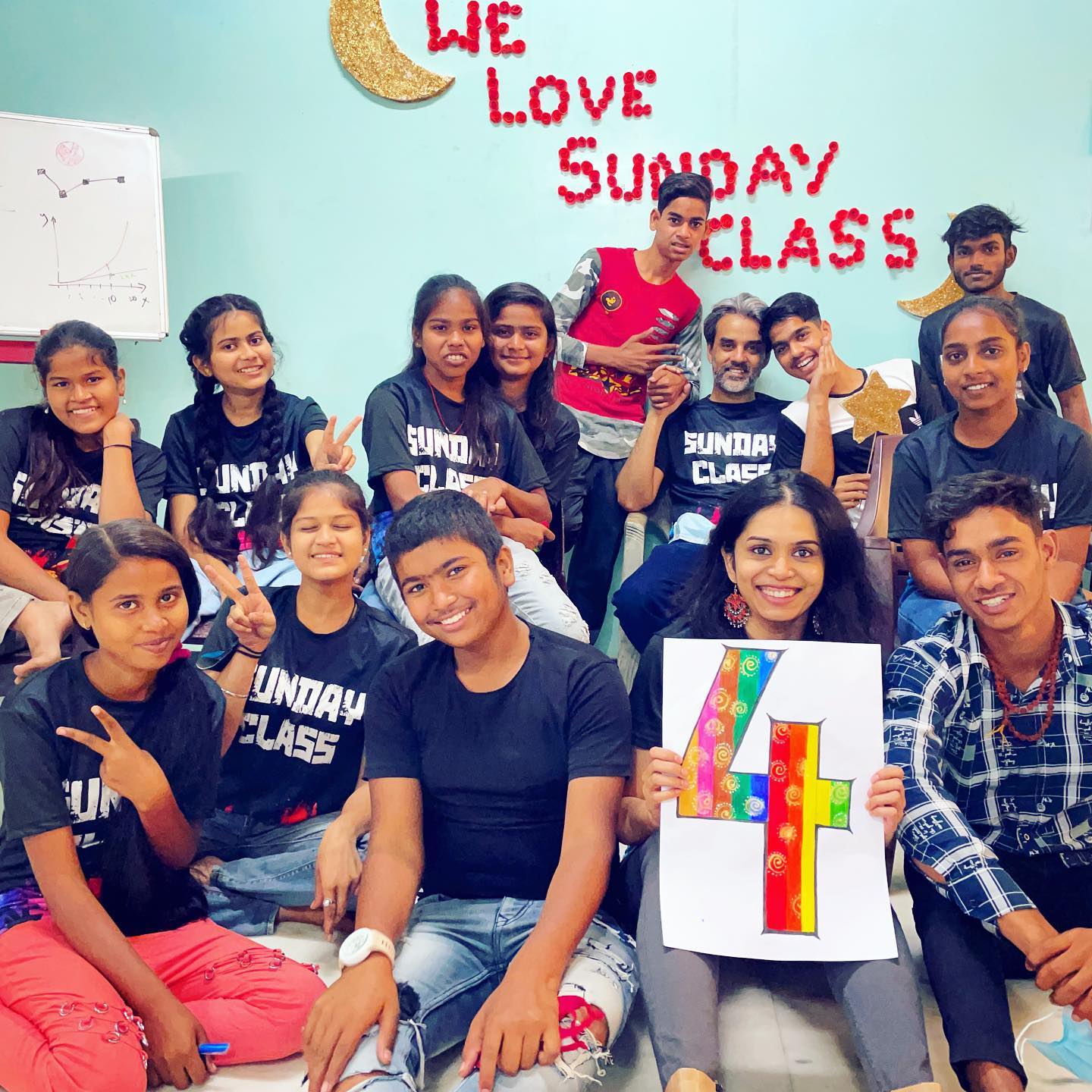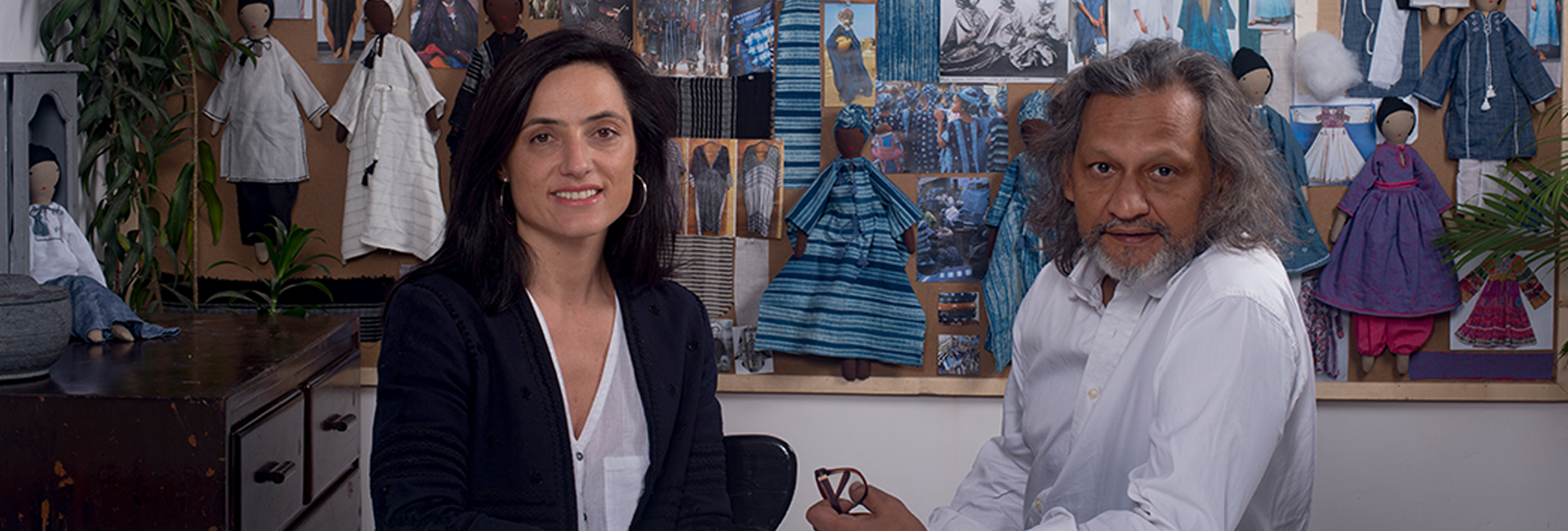(February 10, 2023) Growing up next to a railway station in Calcutta, Dr Anurup Mitra loved to watch the trains go by. It’s a passion he carried with him into adulthood, but the plan to start a business around this was never really on his mind. He and his wife, Antara Sarkar went on to co-found The Pink Engine, quite by chance. The entrepreneur couple’s to-scale, 3D models of Indian trains, have found their way into homes of railway buffs around the world. Recently, they were overjoyed to learn of one more milestone – their 3D models of Indian Railways coaches have been given a place at the iconic Chhatrapati Shivaji Maharaj Vastu Sangrahalaya in Mumbai. The 100-year-old museum houses thousands of exquisite exhibits from Asia and Europe.

Dr Anurup Mitra and Antara Sarkar
“We build the models from scratch here in India – and to see them on display in one of India’s finest museums makes us proud and happy,” the couple remark. Their miniature models aren’t just for show – they can attain a speed of up to 240 km/hr and have been bought by customers in North America, Europe and the Middle East.
The Pink Engine
“The Pink Engine came into existence in 2019 to give every rail fan, young or old, an opportunity to bring home their own Indian Railways 1:100 scale model. “We love seeing people so passionate and nostalgic about Indian Railways trains,” says Antara, as she connects with Global Indian.
“Indian trains are so attractive that all we have to do is make faithful scaled down replicas,” she says, adding, “We have been told by our international customers that they love the bright colours and designs on our trains, and were just waiting for someone to come up with model trains from India.”
Model trains are a popular hobby around the world and the couple were happy to learn, through research and experience, that the community is willing to spend both time and money, provided they get good quality models built to scale.
In love with Indian Railways
Before they established The Pink Engine, the couple were looking to buy a collector’s model of the Indian Railways (IR) for their home – as a memento. “Surprisingly, we discovered that no one was selling train models for adults. All we found were amateurish toys made for kids, which looked like poor caricatures of the beautiful locomotives and coaches that we actually have in the Indian Railways,” remarks Antara.

It planted the seeds for a new startup idea. Antara, a BITS Pilani alumna, quit her job at JP Morgan and together, the Greater Noida based couple took the plunge. They are often asked why they are so fascinated by the Indian Railways and they always say: “Which Indian is not?”
“I think everyone in this country is fascinated by the railways and has a story associated with it. We Indians carry a lot of nostalgia and sentiment around the Indian Railways,” Antara says.
They started their venture with the belief that there are millions of people in love with the Indian Railways. “And when we started The Pink Engine, we soon discovered that this was so true,” tells Antara.
Anurup, who has attained a PhD in electronics, designs complicated electronic integrated circuits (chips) as part of his day job.
First-of-its-kind IR miniatures
The model-train hobby has been around in the West for many years. Still, very little attention is paid to Indian consumers or the Indian Railways, the largest in the world. “Also, it’s prohibitively expensive to buy models from abroad, at least for the average Indian,” says Antara. The couple spotted their business opportunity and began designing models on their computer at home. So far, the interest they have generated and the revenues have been encouraging. Moreover, they’re proud to be in the ‘Make in India’ bandwagon.
When the couple made the locomotive’s first prototype, they used a 3D printer to print the design. 3D printers need filaments, which are like ink cartridges of normal printers. “The only filament that was available to us then was bright pink in colour. As we marveled at our diminutive pink locomotive, the name of our startup – ‘The Pink Engine’ came to me in a flash and stayed with us,” recalls Antara.
View this post on Instagram
Giving back…
While Antara and Anurup are working to make The Pink Engine travel successful terrains, they are partners in another venture that has won them accolades. Their philanthropic initiative ‘Sunday Class’, started in 2018, won them the iVounteer Award last year.
Giving wings to dreams of underprivileged kids the couple provide a safe space for them to experience and learn a whole variety of new things through weekend classes that they personally conduct. Along with Maths, Science and English the Sunday class curriculum includes coding, robotics, movie-making, kickboxing, fashion designing, learning electrical and mechanical engineering, and more.
“Good teachers are rare. Anurup and I do all the teaching ourselves and that means studying and preparing hard for every single class,” Antara says.

The couple ensure that learning is hands-on, innovative, fun and useful in the real world. Sessions on child sexual abuse, menstruation, LGBTQ+ rights, and how to handle crushes as teenagers, are also conducted for overall development of the youngsters.
They financially support the children and their families outside the Sunday Class which includes medical expenses, school fees, and emergency expenses, to name a few.
“The children often come and stay in my house for weeks at a stretch. This gives them time to study, which they often don’t get in their own homes as they have to do household chores or work to earn money,” explains Antara, about the youngsters whose parents are either daily wage labourers, domestic help or auto drivers.
“During the pandemic, we provided all-round support to their families. We use The Pink Engine’s revenue, and sometimes we have to use our savings as well in times of need,” says Antara. Looking at their good work some friends and well-wishers also come forward with supportive gestures, when required.
- Follow Antara Sarkar on Facebook, Twitter, Instagram and LinkedIn
- Follow The Pink Engine on Instagram, Facebook, Twitter and YouTube





Excellent job done. God bless you both. ❤🌹🙏
This is so very heartening and motivating. Though I believe Sunday Class deserves its own story as it’s as impressive in its reach and effectiveness. Keep going guys!
How can I join